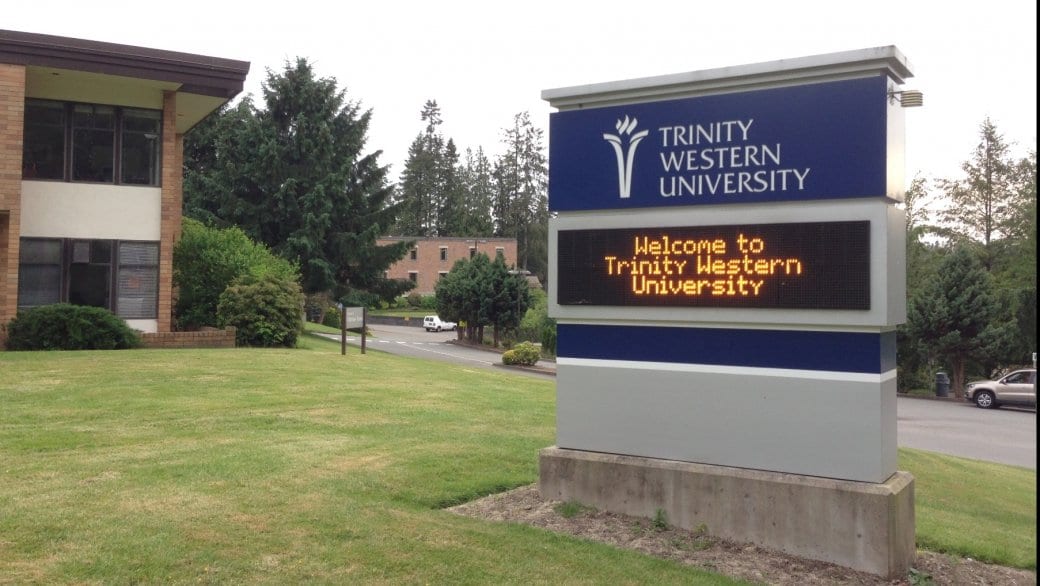Lawyers for BC’s Christian university and BC’s law society met again in court June 1, 2016, this time before a five-judge panel at the province’s Court of Appeal.
The law society’s lawyer argued it was bound to respect its members’ wishes when it refused to accredit future graduates from Trinity Western University’s (TWU) proposed law school.
The members objected to the university’s covenant, which prohibits sex outside traditional, heterosexual marriage on penalty of possible expulsion.
Trinity Western objected to their rejection and sued the law society.
In December 2015, the BC Supreme Court sided with TWU, telling the law society to go back to its original decision to accredit the proposed law school. (The law society had first agreed to accredit TWU’s law grads in April 2014, then rescinded that acceptance six months later after an outcry from its members prompted a referendum, whose results the society’s directors honoured.)
The members voted three to one against TWU.
But the court ruled last December that the law society was wrong to be swayed by its members’ vote.
The law society was going to face a challenge either way: from TWU if it rescinded approval, or from the LGBT community if it didn’t, Peter Gall told the judges.
Either way, Gall said, the decision to revoke approval was within the society’s legal capacity under BC’s Legal Profession Act.
The law society is asking the appeal court to restore its TWU refusal.
The society had a right to ask its members to make the decision on the competing rights in the situation, Gall said. He summarized the competing rights as: freedom of religion and association for TWU, versus equal access to a legal education for members of the LGBT community.
The court needs to find a balance between those rights, he said.
LGBT Coalition lawyer Kerry Brooks told the court the covenant stigmatizes queer people as vile, unseemly and deviant even before they might be TWU students. “The true impact and effect of the covenant is that it is discriminatory,” she said.
Such discrimination could be deemed unprofessional conduct and punished by the law society, she said. So why is it acceptable for TWU admission, she asked.
TWU argued last year that the law society’s job is to regulate professional conduct, not morals.
In a June 1 statement, the director of TWU’s proposed law school said the decision to approve its graduates must be based not on personal opinions and feelings, but on the law and evidence.
“We hope the court of appeal will arrive at the same conclusion,” Earl Phillips said.
The appeal hearing continues until June 3.

 Why you can trust Xtra
Why you can trust Xtra


